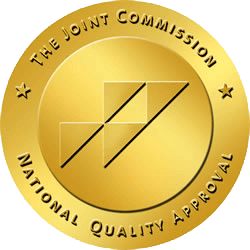The teen years are an emotional roller coaster. It’s complicated by hormonal changes and the transition between childhood and adulthood. Though most emerge from the teen years without complication, nearly 6% of adolescents experience depression. Unfortunately, many of these teens go undiagnosed, never receiving the treatment they need for depression. Left untreated by health professionals, a teen may begin to self-medicate with substances like drugs and alcohol.
Understanding Teen Depression
Depression is a mental health disorder characterized by feelings of sadness, unhappiness, hopelessness, and even guilt. Though any teen can develop depression, those with a family history of mood disorders, and those who have experienced a stressful life event are at the highest risk. Teen depression is also more common in girls and those with learning disabilities, chronic illness, or unstable home life. Some teenagers may hide or refuse to talk about their feelings. However, teen depression is often evident through other symptoms, which look different than the symptoms of adult depression. Examples include:
- Unusual sleeping patterns
- Weight and appetite changes
- Low energy and increased fatigue
- Poor academic performance
- Lack of interest in hobbies, activities, or relationships
- Irritability
- Thoughts of suicide
Teen depression is a severe problem that, though treatable with therapy and medication. Often, teens that are hurting look to drugs or alcohol to make themselves feel better. Alcohol may numb feelings of sadness or hopelessness, whereas a drug can stimulate a teen’s brain to produce ‘feel good’ hormones that make them feel healthy and improve mood. However, though substances can mask symptoms in the short term, they only damage the central nervous system and worsen depression over time. A co-occurring mental health disorder and substance abuse disorder is much more complicated to treat than depression alone. The more a teen uses substances to self-medicate for depression, the more likely he or she is to become addicted. That is why parents should be as vigilant about a child’s mental health as they are their physical wellness. Parents should encourage teens to talk about their feelings, or otherwise arrange an opportunity for them to speak with someone else they can trust, such as a psychologist or guidance counselor.
Treatment at Destinations for Teens
Parents suspecting their child is depressed should seek out the help of mental wellness professionals. They will provide sound therapy for depression and give teens the tools they need to manage a mental health disorder. If depression has already escalated to drug abuse, a teenager may need treatment for a co-occurring mental health and substance abuse disorder. Often, parents mistake the need for professional treatment with a need for more discipline or boundaries. However, discipline does not treat depression and will do little to manage a behavioral disorder like substance abuse. Destinations for Teens offer professional support for teens experiencing depression as well as those abusing substances. Find a substance abuse treatment center near you that specializes in the treatment of teens with co-occurring mental health and substance abuse disorders today. To learn more about teen depression and drug use, give us a call at 877.466.0620. We can provide support if your teen is struggling.


